Herbal Tea Recipes for Health and Wellness
At NaturalHealingTips.com, we believe in harnessing the gentle power of nature to support your health journey. Today, we delve deep into why this delightful drink is a cornerstone of natural wellness, exploring the incredible benefits of its key ingredients and guiding you on how to craft your perfect cup of natural healing. Whether you’re battling a seasonal sniffle, seeking a moment of calm, or simply aiming to boost your daily intake of beneficial compounds, a personalized herbal infusion with honey and lemon is your answer.
Herbal tea recipes infusions, often referred to as tisanes, have been a staple in traditional medicine for millennia. Unlike true teas derived from the Camellia sinensis plant (black, green, oolong), herbal teas are made by steeping various plant parts – leaves, flowers, roots, seeds, and bark – in hot water. Medicinal properties, beneficial compounds, essential oils will be extracted thus making the beverage gives a therapeutic punch.
Benefits of Herbal Tea Recipes
The beauty of incorporating herbal tea recipes for natural healing into your routine lies in its gentle yet effective action. From promoting relaxation and aiding digestion to boosting immunity and reducing inflammation, different herbs offer a spectrum of health benefits. They are a natural, often caffeine-free, alternative to many over-the-counter remedies, making them ideal for daily consumption. Regular intake of warm herbal drinks can contribute significantly to your overall health and resilience, helping your body maintain its natural balance and ability to heal itself.
Incorporating herbal tea recipes for natural healing into your routine offers gentle yet effective actions. From promoting relaxation and aiding digestion to boosting immunity and reducing inflammation, different herbs provide a spectrum of health benefits.
Herbal Teas: Nature’s Healing Brew
Herbal tea recipes are made from dried flowers, herbs, roots, spices, and leaves—excluding traditional tea leaves like green or black tea. These caffeine-free healing teas are rich in antioxidants and nutrients.
Different Type of Herbal Tea Recipes and Their Benefits:
| Tea Type | Main Ingredient | Benefits |
| Chamomile Tea | Chamomile flowers | Reduces stress, improves sleep |
| Peppermint Tea | Peppermint leaves | Aids digestion, relieves headaches |
| Ginger Tea | Fresh ginger root | Boosts immunity, relieves nausea |
| Tulsi Tea | Holy basil (Tulsi) | Fights infections, balances hormones |
| Hibiscus Tea | Hibiscus flowers | Lowers blood pressure, rich in antioxidants |
| Lemongrass Tea | Lemongrass stalks | Detoxifying, good for skin and digestion |
How to Make Natural Herbal Tea Recipes at Home
Making herbal tea at home is easy and needs very little equipment.
Basic Easy Herbal Tea Recipes (for most herbs):
Ingredients:
- 1–2 tsp dried herbs (or 1 tbsp fresh)
- 1.5 cups water
- Optional: honey, lemon, cinnamon
Instructions:
- Boil water in a pot or kettle.
- Add herbs and cover the lid (to retain essential oils).
- Let it steep for 5–10 minutes.
- Strain and, if preferred, serve warm with lemon or honey.
👉 Also Read: Natural Immunity Boosting Tips for All Seasons
Ayurvedic Teas: Balance Your Doshas
In Ayurveda, health is rooted in balance—particularly between the three doshas (Vata, Pitta, and Kapha). Ayurvedic teas help restore this equilibrium using traditional herbs and spices.
Example Ayurvedic Teas:
Cumin-Coriander-Fennel (CCF) Tea
A classic detox tea recipe in Ayurveda.
Ingredients:
- 1 tsp cumin seeds
- 1 tsp coriander seeds
- 1 tsp fennel seeds
- 2 cups water
Instructions:
- Boil all ingredients in water for 10 minutes.
- Strain and drink warm throughout the day.
Benefits: Improves digestion, reduces bloating, supports detoxification.
Ginger-Turmeric Tea (Anti-inflammatory) for Immunity
A potent immune-boosting tea ideal for colds and inflammation.
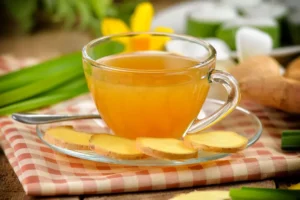
Ingredients:
- 1 tsp grated ginger
- 1/2 tsp turmeric powder (or fresh turmeric)
- Pinch of black pepper
- Honey (optional)
Instructions:
- Boil all ingredients (except honey) in 2 cups water for 5–7 minutes.
- Strain and add honey once slightly cooled.
Green Tea & Its Herbal Fusions
Green tea is valued for its antioxidant qualities, even though it isn’t technically caffeine-free. Mixing it with herbs enhances both flavor and function. Here are some popular green tea fusions:
Popular Green Tea Fusions:
- Green tea + mint → Refreshing and good for digestion
- Green tea + tulsi → Immunity booster
- Green tea + lemon + honey → Detox tea
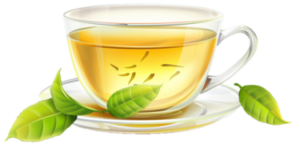
Preparation Tip:
Avoid boiling green tea leaves directly. Instead, steep them in hot (not boiling) water at around 80°C for 2–3 minutes to preserve antioxidants.
Preparation Tip: Avoid boiling green tea leaves directly. Instead, steep them in hot (not boiling) water at around 80°C for 2–3 minutes to preserve antioxidants.
Floral Teas: Calming & Uplifting
Floral teas are made from petals and blossoms. These teas are not only visually beautiful but also calming and aromatic.
Common Types:
- Lavender Tea: Relieves anxiety and improves sleep.
- Rose Petal Tea: Soothes skin and digestion.
- Blue Pea Flower (Butterfly Pea) Tea: Rich in antioxidants and changes color with lemon juice!
Preparation:
Use 1 tbsp of dried flowers in hot water, steep for 5–7 minutes, and enjoy.
👉 Also Read: Herbal Teas for Stress and Digestion
Teas for Specific Health Needs
Herbal Teas for Immunity
- Ginger + turmeric + tulsi + cinnamon
- Lemon + honey + black pepper
Herbal Tea Recipes for Weight Loss
- Green tea + lemon + apple cider vinegar
- Fennel + carom (ajwain) + cumin tea
For Anxiety & Sleep
- Chamomile tea
- Lavender + lemon balm infusion
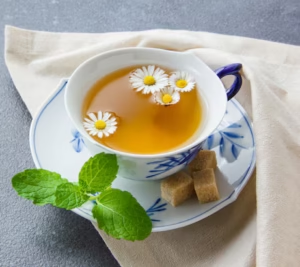
For Digestion
- Peppermint tea
- Triphala tea (from Ayurvedic medicine)
Tips for Brewing the Perfect Natural Tea
- Use a covered pot or lid while steeping to retain aromatic compounds.
- Choose glass, ceramic, or stainless steel pots—avoid aluminum or non-food-safe metals.
- Drink warm or room temperature. Avoid iced herbal teas unless recommended for your body type (as per Ayurveda).
When to Enjoy Your Healing Brew
This versatile drink fits seamlessly into any part of your day:
- Morning Energizer: A warm ginger and lemon infusion can kickstart your metabolism and cleanse your system.
- Afternoon Pick-Me-Up: Peppermint or a citrusy blend can offer a natural energy boost without caffeine.
- Evening Relaxant: Chamomile or lavender tea with honey is perfect for unwinding before bedtime.
Important Safety and Quality Considerations
While herbal tea recipes infusions are generally safe and gentle, it’s always wise to exercise caution:
- Consult Your Healthcare Provider: If you are pregnant, breastfeeding, taking medications, or have a pre-existing health condition, consult with a doctor or qualified herbalist before incorporating new herbs into your routine. Certain herbs can interact with medications or have contraindications.
Final Thoughts: Healing in a Cup
Drinking natural healing tea is a way to slow down, think, and connect with your body’s natural rhythms. It’s more than just a health practice; herbal and natural teas provide gentle, potent healing whether you’re fighting a case of the seasonal flu, trying to improve your digestion, or just looking for peace.
Add them to your daily routine, experiment with ingredients, and customize your blends to suit your wellness needs.
FAQs About Herbal Tea Recipes
Q1: Can I drink herbal teas every day?
Yes, most herbal teas are safe for daily use. However, moderation is key, and some herbs may not suit everyone.
Q2: Are there side effects to herbal tea Recipes?
Some herbs (like hibiscus) may lower blood pressure, and others may interact with medications. Always consult a doctor if you have medical conditions.
Q3: Which herbal tea recipes is best for weight loss?
Green tea, hibiscus, and ginger tea are commonly recommended for boosting metabolism and digestion.
Q4: Can children drink herbal teas?
Mild teas like chamomile or peppermint (in small amounts) are usually safe, but consult a pediatrician first.
⚕️ Medical Disclaimer
The information provided in this article is for educational and informational purposes only and is not intended as a substitute for professional medical advice, diagnosis, or treatment. Always seek the guidance of a qualified healthcare provider with any questions you may have regarding a medical condition, dietary change, or wellness practice. Never disregard or delay seeking professional medical advice because of information found on this website.
Natural remedies and lifestyle suggestions may not be suitable for everyone. Results may vary depending on individual health conditions.


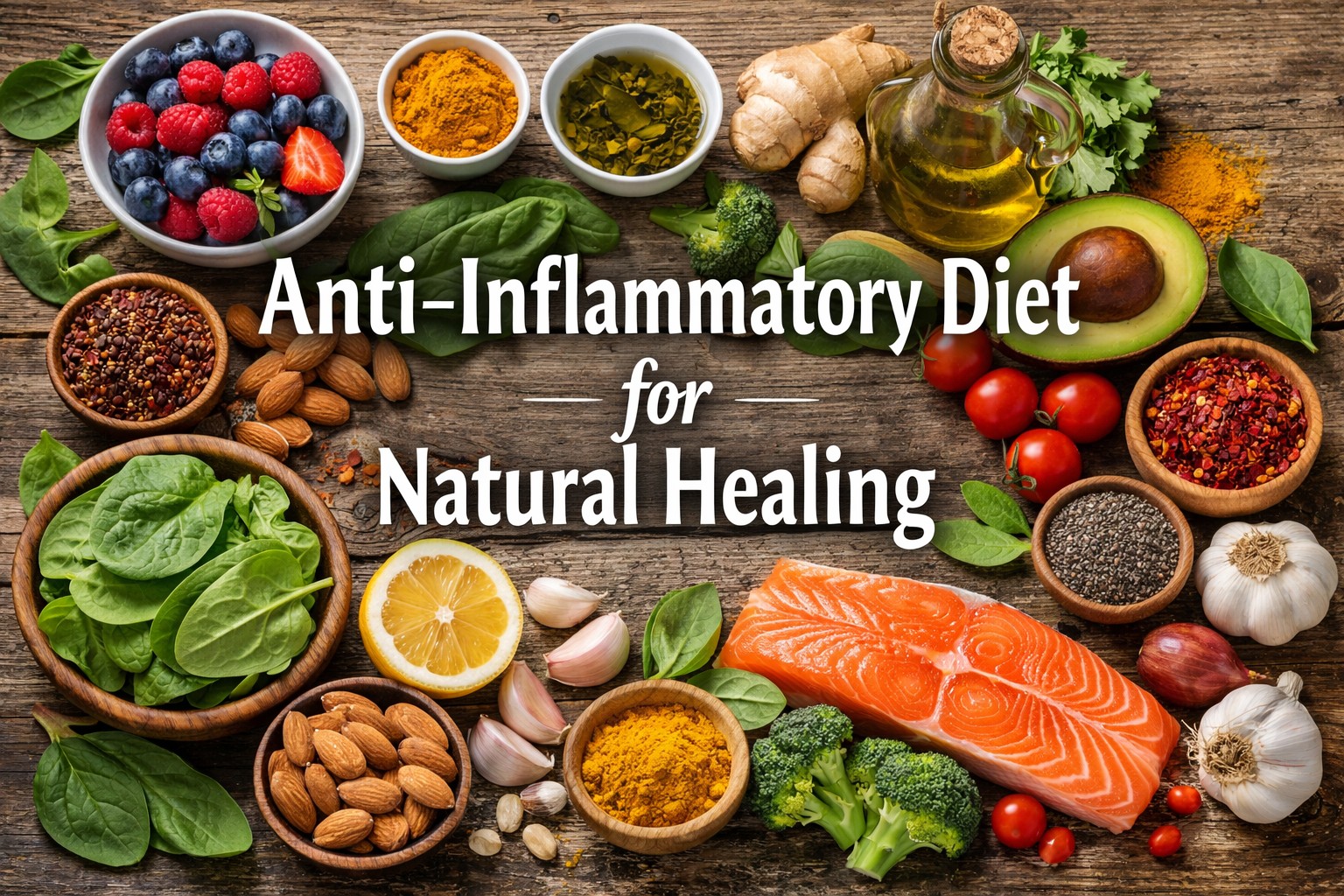
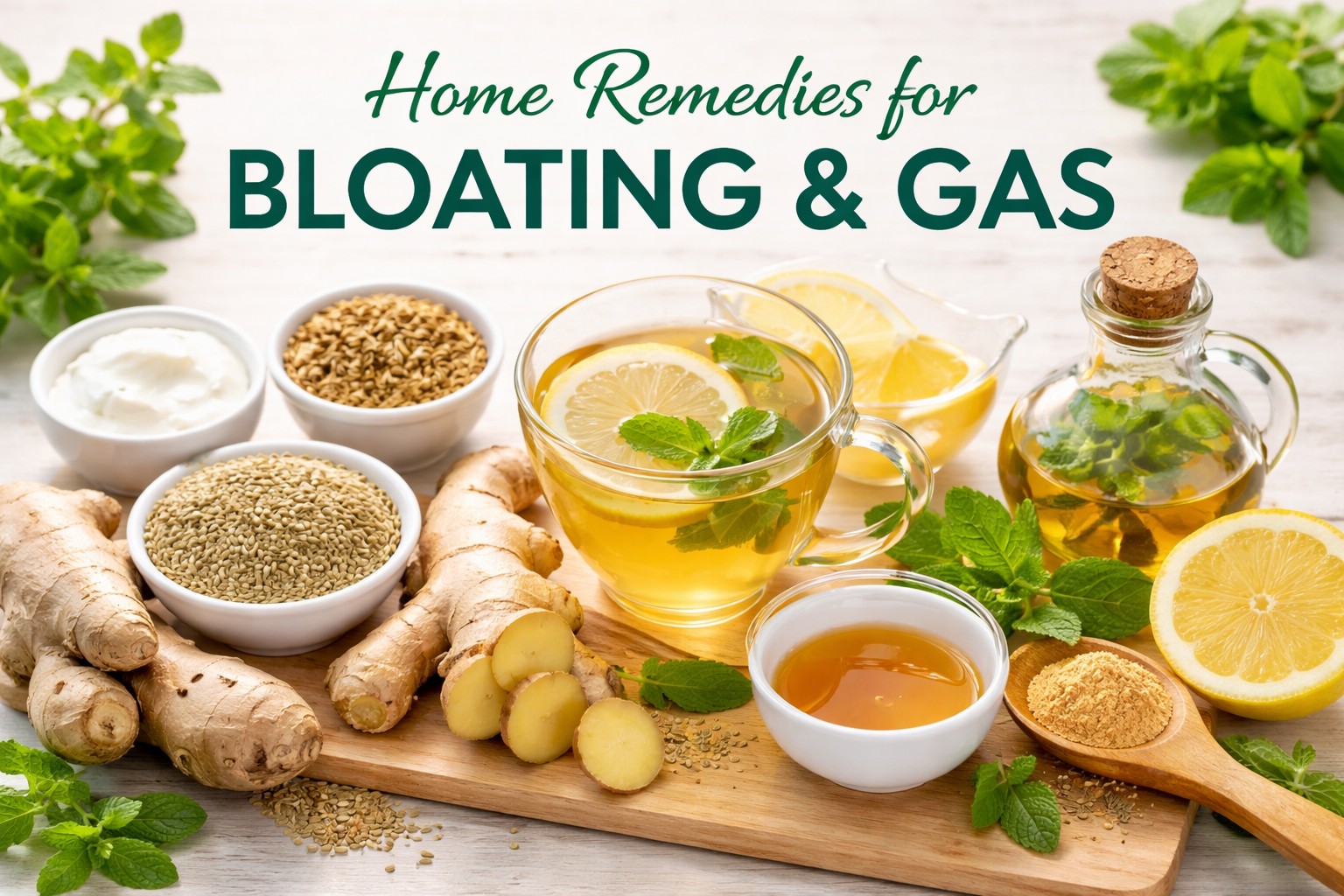

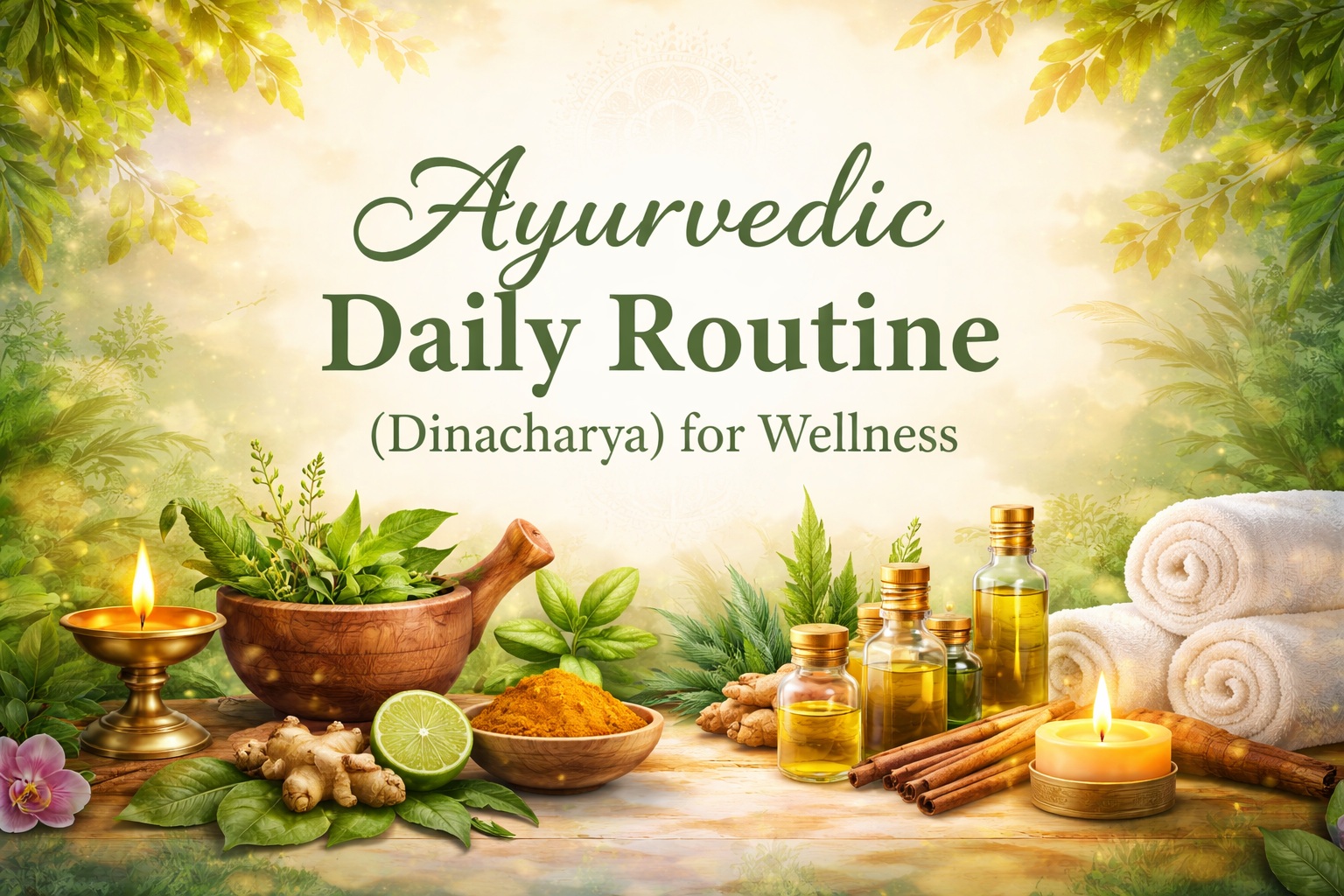
jobsonradar.com is one of the best platforms for government job seekers where you can find daily jobs in English
Good info